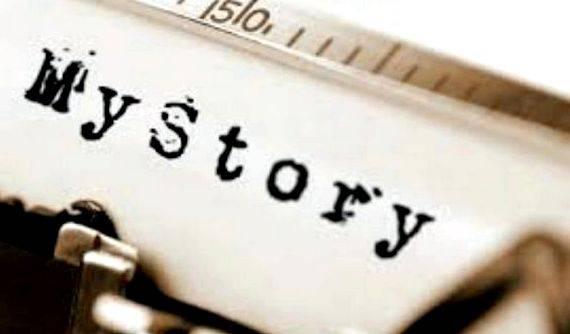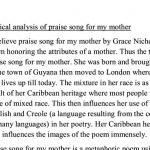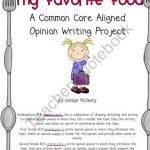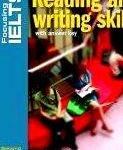A few days ago I finished the first draft of my current novel project after a few months of work, finishing at 83,212 words. Now what should I do with it?
So obviously I need to edit it. Should I jump in right away with the editing? Should I let it sit for a few weeks to get some distance? Should I send the rough draft straight to my beta readers? Should I work on another project?
What are some practical, immediate suggestions for what to do after finally finishing that first draft?
asked Sep 19 ’11 at 2:59
John Smithers’ advice is good, but I’d add a few details (and leave it for longer than three weeks!)
Before you put the MS away, make a first pass at your query letter, as well. This is good because the query needs some time away from your eyes just like the MS does, and because writing the query can really help you figure out what the book has going for it, and what it’s lacking.
So, after the query and MS have rested and you’ve forgotten about them, come back with fresh eyes and look at big stuff, first. Write your synopsis now, I’d say, and look for pacing issues (too many chapters with no action, or too much action all the time, etc.) Make sure the book you have matches the book you wrote about in your query, and if it doesn’t, change it. Check for character consistency, development, etc. Make sure your plot structure is solid (rising action, climax, satisfying conclusion, etc.). There are entire books on editing out there, (Self-Editing for Fiction Writers by Browne and King is one good one) so I can’t give you the whole story, here, but you get the idea. Obviously you also need to look for style issues, and typos and mechanical errors.
Then send the book to betas. While you’re waiting for them, you can start looking at your publishing option.
Steven Drennan will probably be by shortly to recommend that you self-publish, but you may also want to consider getting an agent and going through a publisher. You can find suitable agents by finding the agents who represent your favourite books in the same genre as your MS, or by using sites like Query Tracker. You may want to post your query at the AW Water Cooler or other sites that offer query critiques, because writing queries is an art in itself.
Once you’ve got responses from your betas, look them over with an accepting but critical eye. If more than one person has a problem with a certain aspect of your book, take a hard look at it. Even if only one person finds something, give it a good look. But don’t let your betas rewrite your book for you. You’re still the author, this is still your book, and you have the final decision on how you want it to go. If you make significant changes, I’d recommend letting the MS sit for another chunk of time before coming back and deciding whether the changes work. Make sure you keep copies of all versions of your work so you can revert as necessary.
When you’ve finally got the MS in the best condition possible, assuming you’re not self-publishing, send out a batch of 5-10 queries to agents. Don’t query them all at once, because sometimes your query won’t be as good as you think it is, and you don’t want to burn bridges (once you’ve queried, you can’t re-query the same agent with the same project, generally).

You may want to include your first choice agent and a few mid-level guys in the first batch, leaving your second choice agent out of it; that way, if you decide your query wasn’t strong, you can send your revised query to your second choice agent and still have a good chance at a good outcome).
If you can’t get a bite on an agent (and I’m talking about after a couple hundred submissions), you could try to submit directly to the publishers who accept direct queries, but there aren’t many. You could also look at self-publishing. There are lots of how-tos out there on how to do a good job, but be prepared to invest some significant cash in cover art and professional editing. You may also want to consider writing under a pseudonym; if you couldn’t interest any agents, and if you’re serious about writing more, you need to seriously consider that this effort really isn’t good enough to be published. (It’s also possible that it’s great quality but in a weird niche, or an over-crowded genre, or something else). But once you’ve published under your name, your book’s out there, and if you later come to realize that it’s poor quality, it’s too late to save your name.
Some of this is genre specific, of course. If you’re writing erotic romance, you could jump straight to the e-pubs without an agent.
TL;DR version: You’ve only just begun! But congrats on an important first step.
This is one of those questions where everyone is going to have a different opinion, so ultimately the final answer is up to you. We can help you consider options, but you have to make the final choices. The options presented so far by Kate and John are very good and get right to the main points: 1) set it aside, and 2) work on something else.
As for setting it aside before editing, the amount of time is up to you. I agree that you should give it at least two weeks, but longer may be even better. If you have a spouse or family member who might be willing to help with this, then you might have them take a pass at it first. I would ONLY recommend this if you believe that person will truly look at it with a critical eye and not just tell you what they think you want to hear.
As for working on something else, Kate and John kind of differ there, but we all agree that you should move on to something else. Whether it is writing query letters or working on a new project is really up to you. Understand that if you are planning to go the traditional route for publishing, the query letter and synopsis are things you are going to have to do anyway, so you can work on them now. My caution there would be that you might find yourself tempted to check your manuscript for main points you would like to include in the query or synopsis, and that might lead you to start editing before truly giving it some time to sit.
Once you do start editing, take at least a couple of passes. Read through once looking for typos or content problems, then read through again looking for plot issues. The order is again up to you, but don’t try to do both at the same time. You’ll find yourself getting frustrated and too easily distracted from one task or the other. Once you have finished editing, then you can send it to your beta readers.
I don’t know how many beta readers you have, but if it’s not at least three or four, you may want to consider using a site like Critique Circle to get more feedback on your story. I have found that some of my beta readers tend to be less critical, but I can count on the folks at Critique Circle to be more honest about potential issues. While your book is out with the beta readers would be a good time to work on the query letters and synopsis.
After you get your responses back from everyone, go through them and decide on any additional editing or rewrites you need to do. While you’re at it, you can continue sending out query letters, and look at them to see if they need revising as well. If you have to do any level of rewriting, it may impact the content of your query letter and/or synopsis, so be sure to check both of them as well.
From there, you are no longer working on writing. Now your focus is on getting published, and that is a whole different ball game. You have plenty of options to consider here as well, but for now, you need to concentrate on getting your story completely finished!
answered Sep 19 ’11 at 14:42
This is the kind of flawed logic that has caused self-publishing to get a bad name. Because it has now become so much easier to self-publish, everybody who thinks they have a story to tell has decided to jump out there and publish it without any consideration of whether or not it’;s worth reading. If you aren’;t going to take the time to make your story worthy of being read (not necessarily the best it can be), then nobody is going to waste their time reading it. Steven Drennon Sep 19 ’11 at 19:20
@Steven Drennon: I don’;t mean to say that writers shouldn’;t hold their work to a high standard. I wanted to show that rewriting is not always the best option. Do you think that if someone has written a bad story (because they are inexperienced) that their inner editor(also inexperienced) is going to do a much better job when it comes to writing an engaging story? That’;s why my advice is to start over if it turns out that the story is not so good. Gagege Sep 19 ’11 at 19:49
Sorry, I misread your response and thought you were suggesting that the writer should not EDIT, when actually you were suggesting they should not REWRITE. My mistake! I agree that a rewrite is rarely necessary. You may have to revise or rewrite portions of your story, but that is not to say that you should spend a lot of time in rewriting the entire story. Sorry! Steven Drennon Sep 19 ’11 at 19:58
Also, do you remember the name of the author that wrote that story you read a year ago that really stunk? I don’;t. – I do. I never read his books again. You don’;t have a good reputation to tarnish yet. – Yes you do. Once your name is linked to bad books, it stays that way, unless you use a pen name. Bad advice Shantnu Tiwari Sep 20 ’11 at 9:39
Your fun has just started.
Look at the first three chapters. Look at the first sentence. Look at the first five pages.
Each of these are critical if you want to sell it. Do not even bother with a re-write of more than the first three chapters until you have an agent/publisher interested.
All of the above are what will keep you from getting into the slush pile/or rejection pile.
You know the genre so you need to identify the agents/publishers who might be interested in that genre. Find them.
Craft your synopsis and query letter.
When all of the above is done send letters and wait. With luck some agent might ask to see the first three chapters. If they do you can send that. If they ask for that then bust ass to get the rest in shape. Learn patience.
If you want to re-write the whole thing with your fingers crossed you’ll at least have something to do. Sending queries and synopsis might be a better use of time and effort. Your time and effort.
But then this is what I do because I have friends who are published writers and this is what their agents advise. Same with the agents I know. Maybe others get other answers from their agents or their friends’ agents.






 In memory of my mother poetic techniques in writing
In memory of my mother poetic techniques in writing My favourite meal writing rubric
My favourite meal writing rubric Reading and writing skills jeremy lindeck
Reading and writing skills jeremy lindeck Finding your voice in memoir writing unit
Finding your voice in memoir writing unit Zhang ailing my writing expert
Zhang ailing my writing expert






